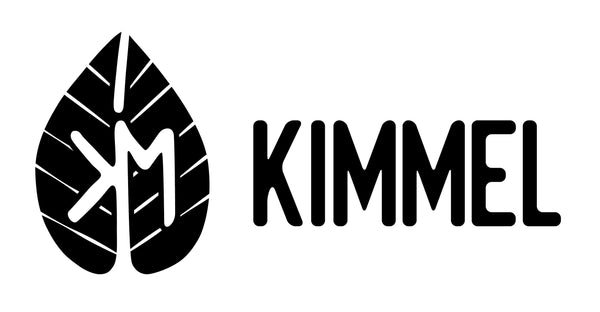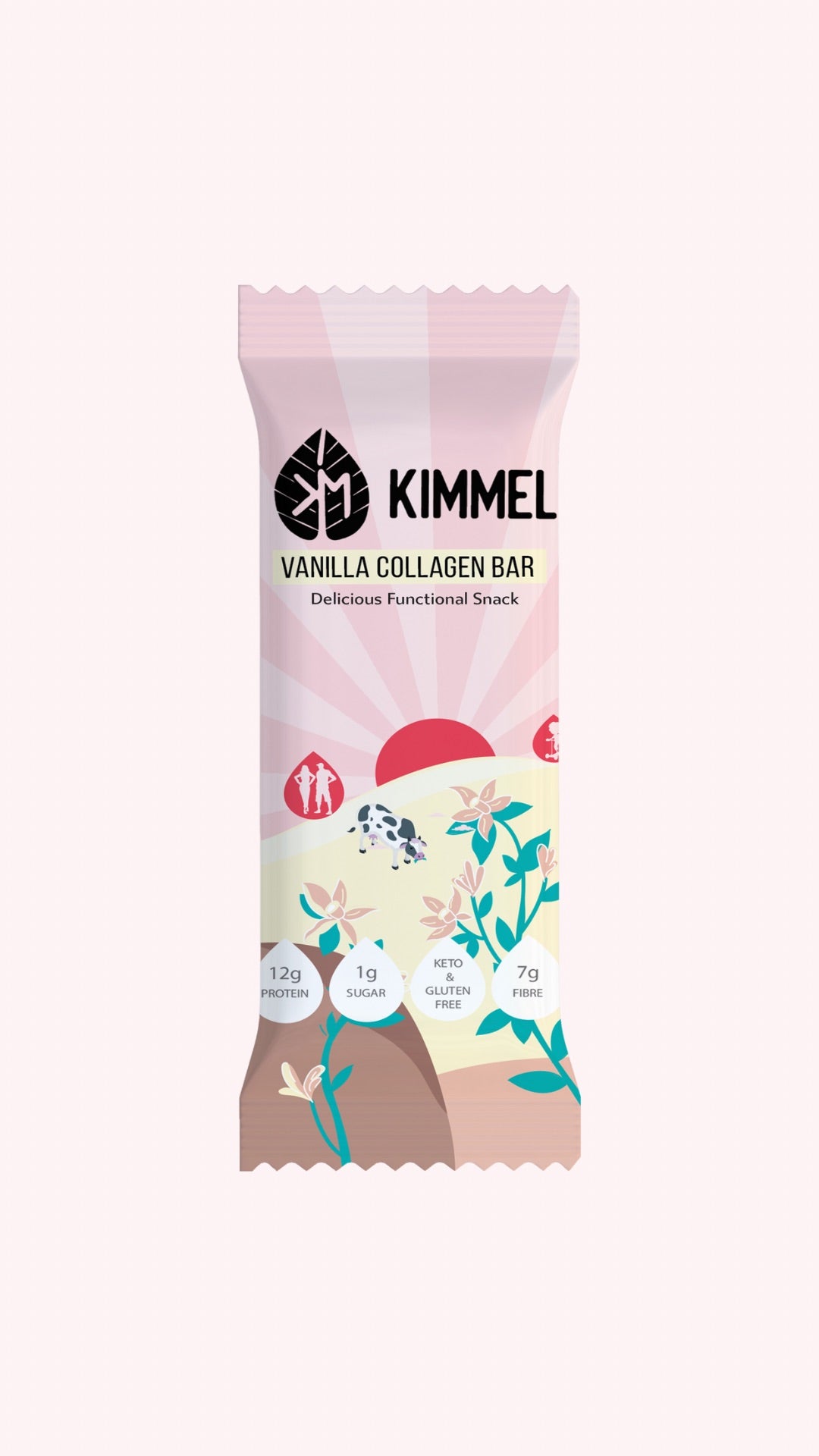Collagen acts like the glue that keeps your body strong and flexible. It’s in your skin, joints, gut, and connective tissues. As time passes, or face things like stress, poor nutrition, or environmental factors, collagen production slows down. This can lead to signs like wrinkles, joint discomfort, or digestive issues — all clues that your body might need a collagen boost.
-
Your Gut’s Not Happy
Your gut lining plays a big role in how well your body absorbs nutrients and keeps inflammation in check — and guess what helps keep it strong? Collagen!
The gut lining is super thin, just one cell thick, acting as a barrier between your body and all the stuff it shouldn’t let in, like undigested food particles, bacteria, and toxins. When this barrier weakens (a condition known as "leaky gut"), it can lead to bloating, food sensitivities, and even autoimmune flare-ups.
One of the key amino acids in collagen, glycine, helps seal the gut lining and reduce inflammation. It also helps repair damaged tissue and encourages healthy stomach acid production, making sure food is broken down properly instead of fermenting in the gut.

-
You’re Not Getting Restful Sleep
Ever have those nights where you sleep for hours but wake up feeling like you barely rested? It might be a glycine issue.
Glycine, which is found in collagen, plays a key role in helping you get better sleep. It helps lower your body temperature, telling your nervous system it’s time to relax and rest. It also calms the mind and eases anxiety, making it easier to drift off.
In a sleep study, glycine was shown to help people fall asleep faster and enter deep sleep more quickly. The best part? It even boosted mental clarity the next morning, meaning no more dragging yourself out of bed with a ton of caffeine!

-
3. Your Joints Are Making Too Much Noise
Your joints should glide effortlessly — no popping, cracking, or squeaking! If your hips feel stiff when you wake up or your knees hold you back during workouts, it could be a sign that your cartilage is wearing down. And since cartilage is mostly made up of collagen, that’s where the issue starts.
Cartilage is like a natural cushion for your bones. When it starts to break down, bones start rubbing together, causing discomfort and swelling. In the past, people got plenty of collagen from eating all parts of the animal, but nowadays, we mainly eat muscle meat, which doesn’t give our joints the collagen they need.

-
Your Hair and Nails Are Breaking More Than Usual
If your once-full, shiny hair is starting to shed more or look a little lackluster, your body might be telling you it needs more collagen. This powerful protein provides key building blocks—like the amino acids proline and glycine—that help keep your hair strong, rooted, and vibrant.
The same goes for your nails. If they’re breaking easily, peeling, or just not growing like they used to, it could be a sign that your body is low on the proteins it needs to produce keratin—the stuff that gives nails their strength and durability.

-
Your Cuts and Scrapes Take Longer to Heal
If minor injuries like cuts, scrapes, or bruises seem to linger longer than they used to, your body might be running low on collagen. This important protein plays a big role in helping your skin and tissues repair themselves.
Collagen helps rebuild connective tissue, which means faster healing, less noticeable scarring, and better recovery from things like muscle strain or even gut irritation. So if healing feels slower these days, it could be your body’s way of asking for a collagen boost.

-
Your Skin Doesn’t Feel as Firm or Bouncy
Your skin tells the story of how well it’s being cared for—and collagen plays a starring role in keeping it looking smooth, plump, and youthful. This powerful protein forms a strong, supportive structure that helps skin stay firm and resist sagging, while also working with hyaluronic acid to keep it hydrated and elastic.
When your collagen levels are high, your skin feels soft, full, and resilient. But when those levels start to dip, the support system beneath your skin weakens. That’s when you may notice your skin looking thinner, feeling drier, and losing its natural bounce. Fine lines can deepen, and your skin may not snap back like it used to.
-

You Struggle to Relax or Wind Down
Feeling anxious, restless, or like your nerves are always on high alert? It might be more than just stress—your body could be low on glycine, a calming amino acid that’s found in collagen.
Glycine helps soothe your nervous system, working much like GABA to reduce anxiety, support better mood balance, and encourage that “rest-and-digest” state your body needs to relax and recharge. When glycine is in short supply, it’s harder to wind down, your stress hormones stick around longer, and sleep can become light or broken—leaving you feeling tired but wired.

8. Your Muscles Feel Weaker—Even With Regular Workouts
If you're hitting the gym but not seeing the strength or recovery you expect, it might not just be about how much protein you're getting—it could be what kind of protein you're missing.
Collagen actually makes up about 30% of your muscle mass and acts as the glue that holds everything together. Without enough of it, your muscle fibers don’t stay as strong, recovery can take longer, and workouts may feel tougher than they should. Collagen also supports healthy tendons and ligaments, helping your muscles stay anchored and protected from strain or injury.
One of collagen’s standout ingredients—hydroxyproline—plays a key role in muscle repair and even supports creatine production, which boosts endurance and strength. That’s why many athletes turn to collagen to speed up recovery, maintain muscle, and enhance overall performance.
The Path to Restoring Your Collagen
If some of those signs sound familiar, don’t worry—collagen loss isn’t a one-way street. With the right habits, you can help your body rebuild what’s been lost and start feeling stronger, more resilient, and more radiant from the inside out.
Bring Collagen Back Naturally
Long before modern food processing took over, people got plenty of collagen by eating a variety of whole animal foods—from skin to bones and everything in between. Thankfully, you can still tap into those time-tested traditions today:
-
Bone Broth
This is a collagen powerhouse. Simmering bones, cartilage, and marrow slowly releases gelatin, glycine, and proline—key nutrients your body uses to build collagen. -
Skin-On Meats
Cuts like chicken thighs, pork belly, or wild fish with the skin on are naturally rich in collagen and super easy to add to meals. -
Organ Meats
Liver, heart, and kidneys may not be on every menu, but they’re full of glycine and proline—amino acids your body needs for collagen production. -
Egg Membrane
That thin layer inside your eggshell? It’s packed with type I collagen, which is the same kind that supports healthy, youthful-looking skin.
Stop Collagen Loss in Its Tracks
Collagen doesn’t just fade away—it gets broken down by everyday stressors. Here's how to slow that process:
-
Avoid Processed Foods
Highly refined oils and packaged snacks can cause inflammation, which speeds up collagen breakdown over time. -
Manage Stress
High levels of cortisol (your stress hormone) interfere with collagen production and contribute to tissue damage. Taking time to relax really does your skin and joints a favor.
Encourage Collagen from the Inside Out
There are simple ways to help your body ramp up collagen production naturally:
-
Strength Training
Lifting weights or doing resistance exercises activates the cells (called fibroblasts) that make collagen—giving you stronger skin, joints, and bones. -
Cold Exposure
Ice baths or even quick cold showers help boost circulation and can trigger your body’s natural repair processes, including collagen synthesis. -
Morning Sunlight
A little morning sun helps regulate hormones like melatonin and growth factors that are important for your body’s collagen renewal cycle. -
Prioritize Deep Sleep
Your body does the bulk of its collagen rebuilding while you sleep—especially between 10 p.m. and 2 a.m. Making rest a priority means waking up stronger, not just refreshed.
Rebuilding your collagen is all about getting back to basics—bringing in the wisdom of traditional eating, protecting your body from daily stress, and working with your body’s natural rhythm to support renewal.










